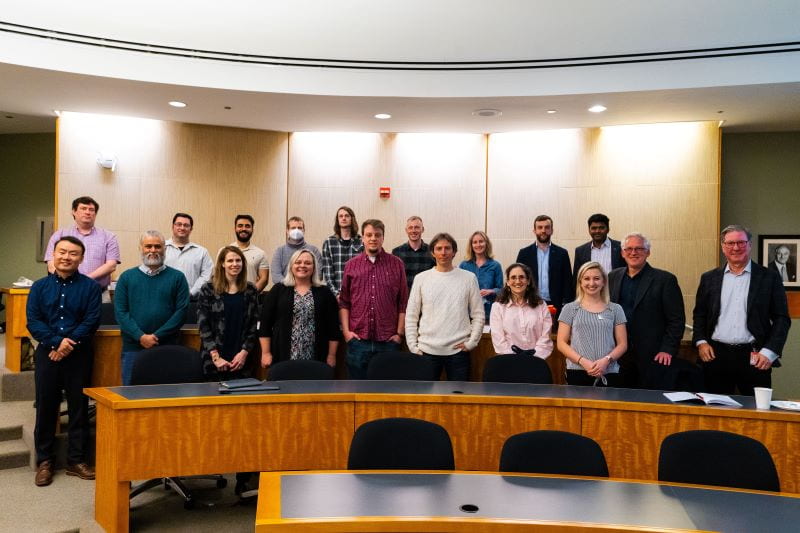UChicago CASE
Training Programs
Programs and Certificates
The University offers various programs and certificates for CASE members, including several programs specifically designed at UChicago Booth to train National Lab scientists in leadership, entrepreneurship, and partnership management. These programs have gained national recognition and include scientists across many national laboratories.

Strategic Laboratory Leadership Program (SLLP) was designed for National lab scientists by the UChicago Booth Executive Education faculty and originally included scientists and staff from Argonne National Laboratory and Fermi National Accelerator Laboratory, and it has expanded to include participants from seven more national laboratories: Idaho National Laboratory, Jefferson Lab, Princeton Plasma Physics Laboratory, SLAC National Accelerator Laboratory, Lawrence Berkeley National Laboratory, Ames Laboratory, and the National Renewable Energy Laboratory.
SPARC Program: Science, Partnerships, and Research Collaborations – was designed specifically for University faculty and national Lab scientists to develop productive and ongoing partnerships across academic, government and industry contexts. It provides rigorous training with UChicago Booth faculty and active mentorship from senior leadership at the University to support partnership development and leadership growth.
The SPIN program, launched by the Polsky Center for Entrepreneurship and Innovation with the support of JTFI, offers a program featuring three domains of learning:
- The entrepreneurial mindset;
- The sstructure of entrepreneurship;
- Applied research in action.
Participants are selected to receive UChicago CASE joint appointments for formal University affiliation and spend two academic quarters taking advantage of programs and resources offered by the Polsky Center.
SPIN participants utilize courses, accelerators, and access to Chicago Booth MBA students and accomplished mentors to explore commercial pathwasy for high-potential technologies developed within the national labs.
The application process for the third SPIN cohort is anticipated to be annouced by Polsky in Sping 2024.
The University of Chicago’s Professional Certificate in Data Science for Business is an immersive ten-month learning journey that prepares professionals to meet the challenges of today’s data-driven environment. This program will equip you to become a cutting-edge data scientist able to develop, optimize, and scale disruptive AI and machine learning models.
An experiential project-based course where students work in teams as data scientists with real-world clients from industry, academia, and social impact organizations.
The Graduate Research Cooperative (GRC) is an initiative of the University of Chicago Office of Science, Innovation, National Laboratories, and Global Initiatives that coordinates and administers projects that involve UChicago graduate students performing PhD thesis research on site at a National Laboratory in National Laboratory-funded programs.
Polsky Science Innovation (PSI) Fellows Program provides the opportunity to learn about and execute on early venture de-risking and business development activities. Supported by training and coaching from Polsky Center staff, PSI Fellows evaluate high-potential technologies emerging out of University of Chicago research labs.
As part of the University of Chicago’s Joint Task Force Initiative (JTFI), the Leadership Academy for Women in Science and Engineering* (LAWISE) task force offers a program to further develop the talent and impact of rising leaders at Argonne National Laboratory, Fermi National Accelerator Laboratory, and the University of Chicago.
Chain Reaction Innovations (CRI), the entrepreneurship program at Argonne National Laboratory, created a new paid internship program to empower Chicagoland Minority-Serving Institutions’ (MSI) students to pursue and excel in STEM careers. The goal is to seed and grow STEM interest beyond the classroom and into the career realm.

